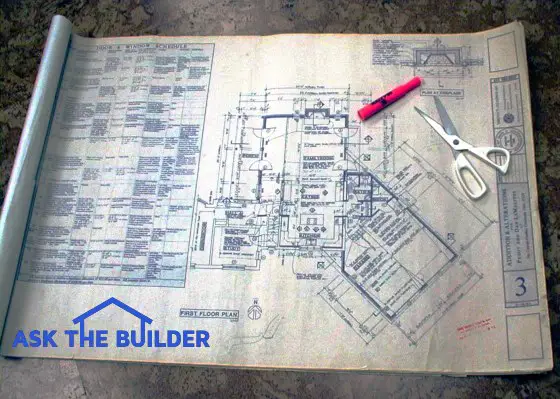Modifying a Model Home Plan to Save Money

Modifying a Model Home Plan to Save Money
DEAR TIM: My wife and I are working with a builder to modify a model home plan in an effort to lower the price as much as possible. The first thing we did was eliminate unnecessary upgrades. Our thought is to upgrade the house after we move in trying to do the upgrades ourselves. We don't want to be penny wise and pound foolish. What is the best strategy? Where can you save money on a new home? How much can we expect to save overall by downgrading the interior and exterior finishes? Tim Oritz, Pinehurst, NC
DEAR TIM: Before you spend too much time trying to figure out where to pinch pennies, you need to do one simple math problem. Based upon my experience in both building and bidding substitute products, I have found that the most you can lower the price of a home is five to seven percent. Multiply the current base price of the model home by six percent. Subtract this amount from the base price. If the calculation shows that you still are over budget, you simply need to shrink the size of the project to lower the price significantly.
I have no problem with people who want to do things themselves. When I work on my own home I actually don't think of it as work. It tends to be creative energy that flows through my hands and arms. Like most people, I find it to be a very gratifying feeling to see a completed job well done. But don't fall into the trap of thinking you can do all things well. Many tasks that craftspeople do while building homes look easy but they are not. What's more, to get professional results you often need some fancy tools that you may not possess.
Time also becomes a factor. Try to keep in mind that you will not be as productive at interior carpentry as a craftsperson who does it on a daily basis. A project that you think will take one day might take a weekend. A weekend project may take two when you suddenly realize you need to go to a soccer game or the weather doesn't co-operate. Large projects can easily stretch over several months.
Try to save money on things that can be changed easily. If you have plumbing skills, consider entry level faucets at each sink. As long as the plumber installs ball type shut off valves below each sink, you can count on being able to easily cut off the water supply to these fixtures in the future. Interior doors can be switched out at a future date if you possess moderate carpentry skills. These two jobs requires few specialized tools.
You can possibly save quite a bit of money in your flooring. Vinyl tile flooring is very affordable and some new styles are very attractive. Interior door knobs might be another cost savings item. Some very affordable ones are available. Asphalt shingles with the least amount of warranty will often perform well. You may be able to save some money here. If your local zoning or association laws permit it, consider an asphalt driveway instead of poured concrete.
How would you like me to build your new home? It's probably impossible for me to fit your job into my schedule, but I will gladly share hundreds of my tricks and building secrets with you and your builder. Check out my New House Specifications.
It is important to know where not to cut corners. Do not eliminate air infiltration and water barriers on the exterior of your home. These can not be added easily in the future. Never downgrade your heating and air conditioning system. If you do, you will seriously compromise your comfort. Do not install low quality windows or doors. These items are the weakest link in your defenses against extreme outdoor temperatures and wind. Always try to buy windows and doors that are certified by independent testing associations.
Be careful about cutting corners with inferior substitute products. For example, do not use low quality paints. You or your painter may actually have to apply more paint to get adequate coverage. This means you might spend more on materials and labor. This same thing is true with built-in appliances. The front end savings may seem attractive but if you have to replace a poor performing dishwasher or oven in three to five years, you might not think you saved much at all.
Column 352